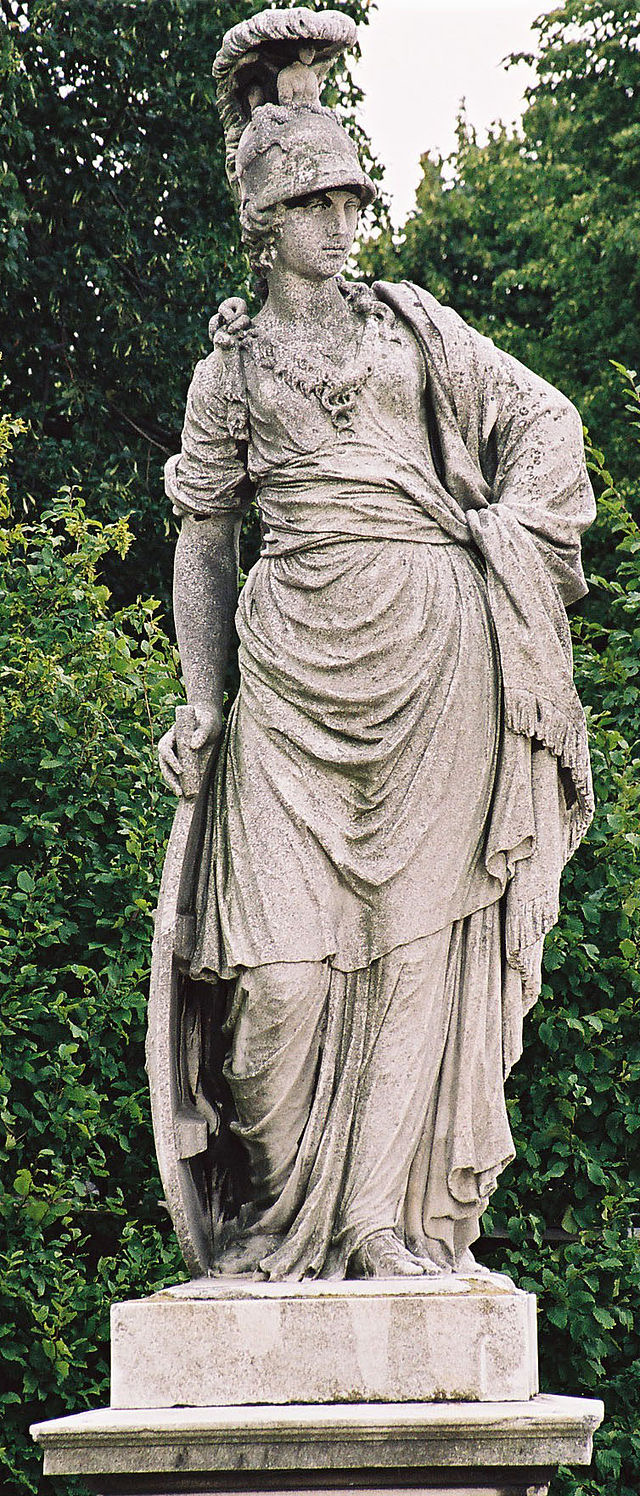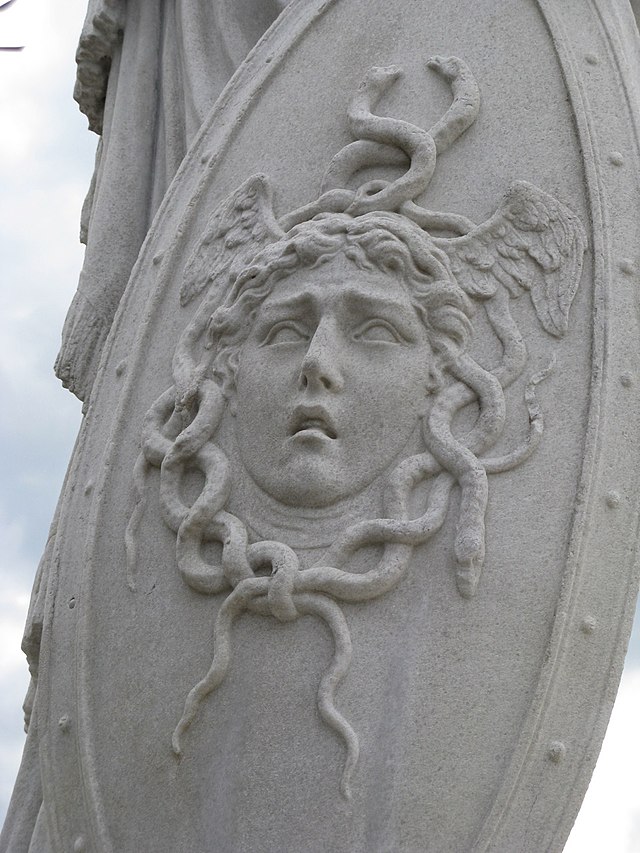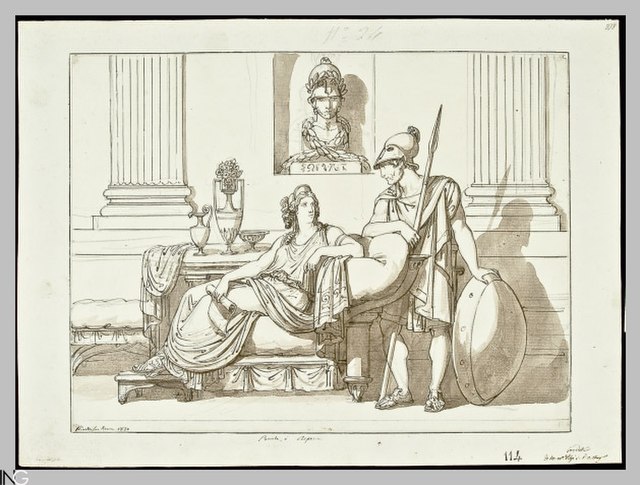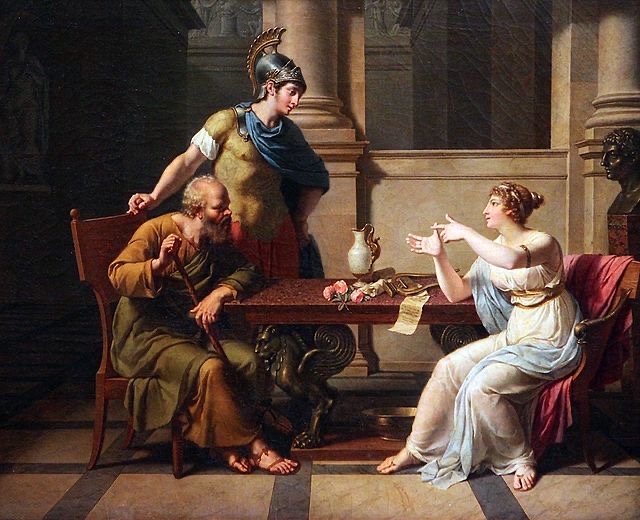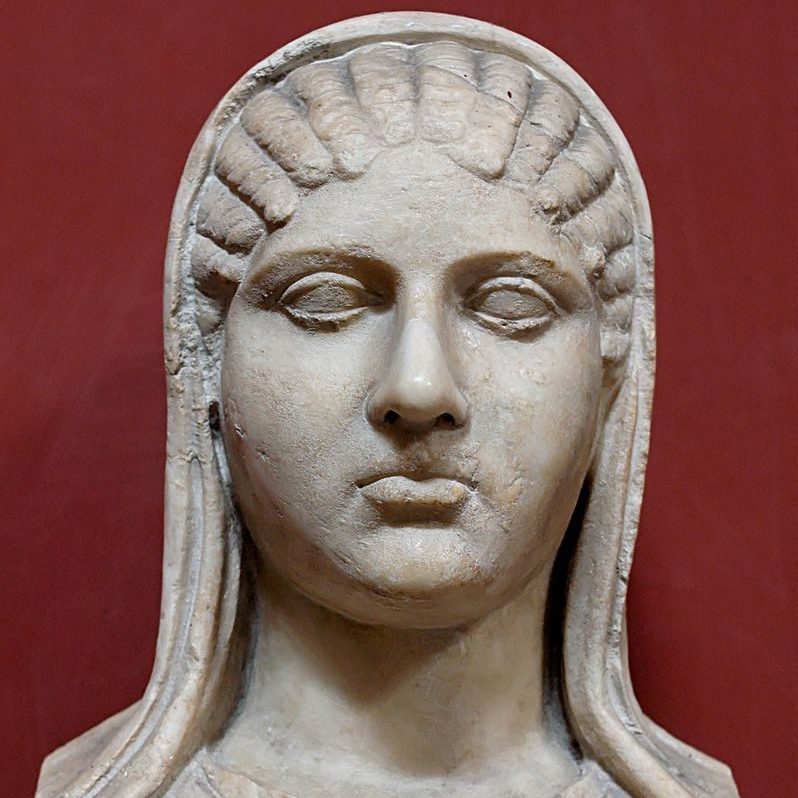 Aspasia of Miletus
Aspasia of Miletus
*470 BCE (Miletus)
†400 BCE (Athens)
Spouse: Pericles
Children: Pericles the Younger
Aspasia was a greek rhetorician who was born in Miletus. She married the statesman Pericles in Athens and had a son with him. Aspasia was his second wife and exerted political influence on him. In the family home there were regular philosophical and political exchanges with the circle of friends and other scholars, including Socrates. Aspasia was attributed with wisdom, political insight, and exceptional eloquence. She had a understanding and judgment of oratorical and political problems. The young Socrates frequently saught conversation with her and calls her, in the dialogue Menexenos, his teacher of rhetoric. Aspasia was also called a hetaera, probably because of her attitude, which deviated from the norms of an athenian women. Above all, her intellect, eloquence, and interaktion with men contrasted her from the others.
-
Primary Sources
-
Secondary Sources
Berndl, W. (2014) Sokrates: Europäer der ersten Stunde ; ein Lebensbild. Hamburg: tredition.
Beuster, D. (2003) Aspasia und Perikles. München: GRIN Verlag GmbH.
Dierichs, A. (2010) Liebschaften der Antike. (Die Berühmten). Mainz: Philipp von Zabern Verlag.
Geck, U. (2019) Essen im Hause des Perikles. Aspasia und die antike griechische Küche. München: neobooks.
Hamel, D. (1998) Athenian generals: Military authority in the classical period. (Mnemosyne, bibliotheca classica Batava, 182). Leiden: Brill.
Houssaye, H. (1890) Aspasie, Cléopatre, Théodora. 2nd edn. Paris: Lévy.
Jouanna, D. (2005) Aspasie de Milet: Égérie de Périclès. Paris: Fayard.
Kessel, F. (ca. 1921) Perikles und Aspásia: Handlung in vier Aufzügen ; angeregt durch Robert Hamerlings Roman “Aspásia”. Köln-Niel.
Krawczuk, A. (1967) Perykles i Aspazja. Wrocław usw.: Zakł. nar. im. Ossolińskich.
Molar (2020) Perikles und Aspasia oder Bibliothek im Hetärenhain: Schauspiel in drei Vorszenen und neun Begegnungen. Berlin: [Trutz-Hardo Hockemeyer].
Nardo, D. (2009) Ancient Greece. (The Greenhaven Encyclopedia Of Ser). New York, NY: Greenhaven Publishing LLC.
Nühlen, M. (1994) ‘Aspasia von Milet’, in Philosophinnen-Lexikon. Aachen: ein-FACH-Verl.
Nühlen, M. (1997) ‘Aspasia von Milet’, in Philosophinnen-Lexikon. Leipzig: Reclam.
Paul, T. (2022) Aspasia von Milet: Hetäre und Ghostwriter? Eine kritische Gegenüberstellung von historischer Persönlichkeit und literarischer Kunstfigur. München: GRIN Verlag.
Podlecki, A.J. (2013) Perikles and his Circle. Hoboken: Taylor and Francis.
Prisoner of history: Aspasia of Miletus and her biographical tradition (1995). New York: Oxford University Press.
Raumer, F. von (1810) Perikles und Aspasia: Eine Vorlesung gehalten zu Potsdam am 26. Februar 1810 vor einer Gesellschaft von Männern und Frauen. Berlin.
Rosenberg, M. (2018) Historical Heroines: 100 Women You Should Know About. Havertown: Pen & Sword Books Limited.
Rullmann, M. (1993) Philosophinnen. Von der Antike bis zur Aufklärung. Dortmund S. 42ff.
Schmid, W. ‘Aspasia und Perikles. Philosophie der Erotik und Erziehung zur Selbstsorge’.
Schreiber, G. ‘Liebe im Schatten der Politik: Perikles und Aspasia’.
Sienkewicz, T.J. (2006) Magill’s Choice. Ipswich: Salem Press.
Waithe, M.E. (ed.) (1987) A History of Women Philosophers: Ancient Women Philosophers 600 B.C. – 500 A.D. Dordrecht: Springer (Springer eBook Collection, 1).
- Online Sources
-
ECC
- Media
- Projects
-
Quotes
You cannot copy content of this page










